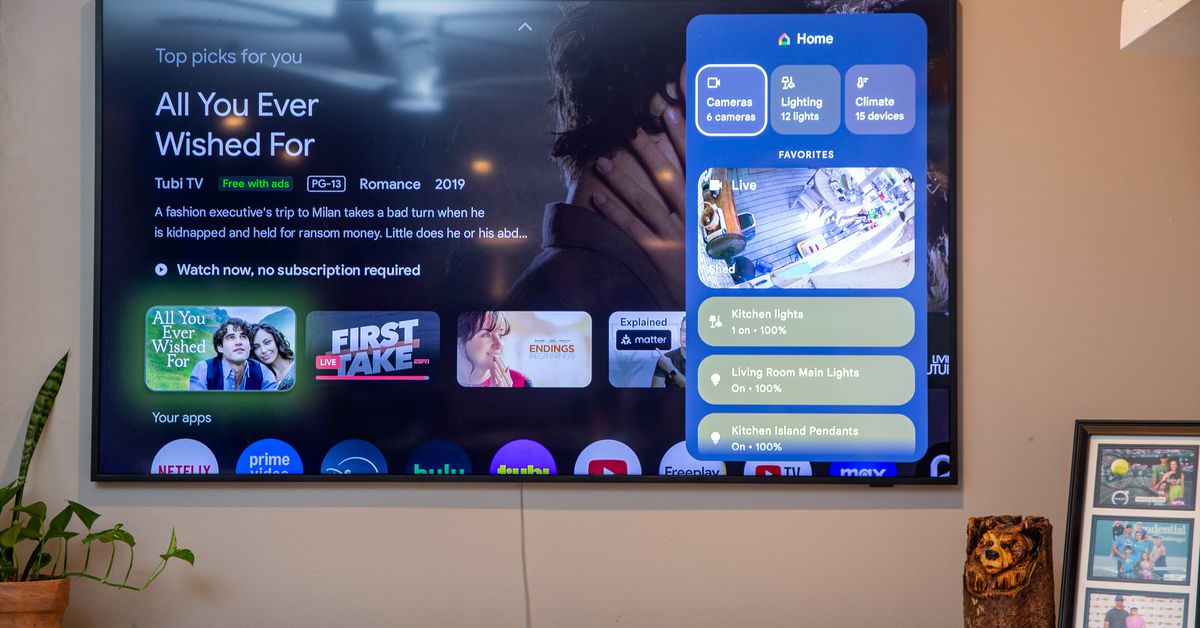How Google’s Gemini AI and Enhanced Microphones Aim to Transform TV Interaction
In an age where technology evolves at lightning speed, Google’s Gemini AI and enhanced microphone capabilities are set to revolutionize the way we interact with our televisions. This groundbreaking integration promises to create a more interactive and personalized viewing experience, fundamentally altering how we consume media. As we delve into the intricacies of this technology, we’ll explore its potential impacts, the innovations behind it, and what it means for the future of entertainment.
The Rise of AI in Everyday Life
Artificial intelligence has seamlessly woven itself into the fabric of our daily lives, from virtual assistants like Google Assistant and Siri to recommendation algorithms on streaming platforms. However, as AI technology advances, its applications are becoming more sophisticated and nuanced. Google’s Gemini AI represents a significant leap in this trajectory by integrating advanced machine learning capabilities specifically designed to enhance user interaction with digital content.
What is Google’s Gemini AI?
Gemini is Google’s latest AI model, designed to combine various forms of data processing and understanding into a unified system. Unlike its predecessors, Gemini promises a more holistic approach to AI by utilizing multimodal processing. This means it can interpret and analyze text, images, and sounds simultaneously, allowing for a richer understanding of context and user intent.
For instance, when integrated with smart televisions, Gemini can recognize voice commands, interpret visual cues from on-screen content, and provide tailored responses based on the user’s preferences and viewing habits. This capability not only personalizes the viewing experience but also makes it more engaging and interactive.
Enhanced Microphone Technology: A Key Component
While Gemini AI is a significant part of this technological evolution, the role of enhanced microphones cannot be overlooked. Traditional microphone systems often struggle with background noise, voice recognition accuracy, and directional sensitivity. Google’s advancements in microphone technology aim to address these challenges, ensuring clearer audio capture and more effective command recognition.
How Enhanced Microphones Work
These advanced microphones employ techniques such as beamforming and noise cancellation. Beamforming allows the microphone to focus on sound coming from a specific direction, effectively filtering out ambient noise. This technology is particularly useful in a household setting where multiple sounds can compete for attention. Noise cancellation further refines audio quality by eliminating unwanted background sounds, allowing for precise voice recognition even in challenging environments.
Transforming TV Interaction with AI and Microphones
The integration of Gemini AI with enhanced microphone technology presents a transformative opportunity for how viewers interact with their televisions. Here are several ways this combination is set to change the landscape of entertainment:
- Voice-Activated Commands: Imagine a scenario where viewers can control their TV entirely through voice commands. Want to switch from a drama series to a documentary? Just say it, and the TV responds. Gemini AI enhances this experience by understanding context and intent, making it feel natural and intuitive.
- Personalized Recommendations: With its advanced data processing capabilities, Gemini can analyze viewing habits, preferences, and even mood based on voice tone. This means that the TV can suggest shows that align with what you’re likely to enjoy, making the search for content much easier.
- Interactive Content: The future of television may involve interactive programming where viewers can participate in real time. For example, during a cooking show, viewers might ask questions about recipes, and Gemini AI could provide instant responses, creating a more engaging experience.
- Accessibility Features: Enhanced microphones and AI can significantly improve accessibility for individuals with disabilities. Voice recognition technology can help those with limited mobility navigate their TVs and access content without needing a remote control.
Challenges and Considerations
While the prospects of Google’s Gemini AI and advanced microphones are exciting, there are challenges to consider. Privacy concerns loom large in discussions about AI and voice recognition technology. Users may be wary of devices that are always listening, fearing potential breaches of privacy and data security. Google must address these concerns transparently, ensuring users feel safe when using their technology.
Additionally, the implementation of such advanced technology requires significant infrastructure, including internet connectivity and software updates. Users in areas with limited internet access may not benefit from these innovations, which could create a digital divide in media consumption experiences.
The Future Landscape of Television
As we look toward the future, it’s clear that Google’s Gemini AI and enhanced microphones will play a pivotal role in shaping the television experience. Future developments might include:
- Smart Home Integration: The ability to control not just the TV but the entire smart home ecosystem through voice commands, creating a seamless environment where entertainment and home management coexist.
- Augmented Reality (AR) Experiences: Imagine watching a sports game and receiving real-time statistics and player information projected onto your living room. This could become a reality with the integration of AI and AR technology.
- Social Viewing Experiences: Enhanced microphones could facilitate virtual watch parties where friends can interact in real time, sharing reactions and commentary, even when miles apart.
Conclusion
Google is at the forefront of a technological revolution that promises to redefine how we interact with our televisions. By integrating Gemini AI and enhanced microphone capabilities, they are paving the way for a more interactive, personalized, and engaging viewing experience. As these technologies develop, they hold the potential to transform not just our entertainment choices but also how we connect with one another through shared experiences. With the right attention to privacy, accessibility, and infrastructure, the future of television is not just bright—it’s brilliantly interactive.
See more Future Tech Daily

